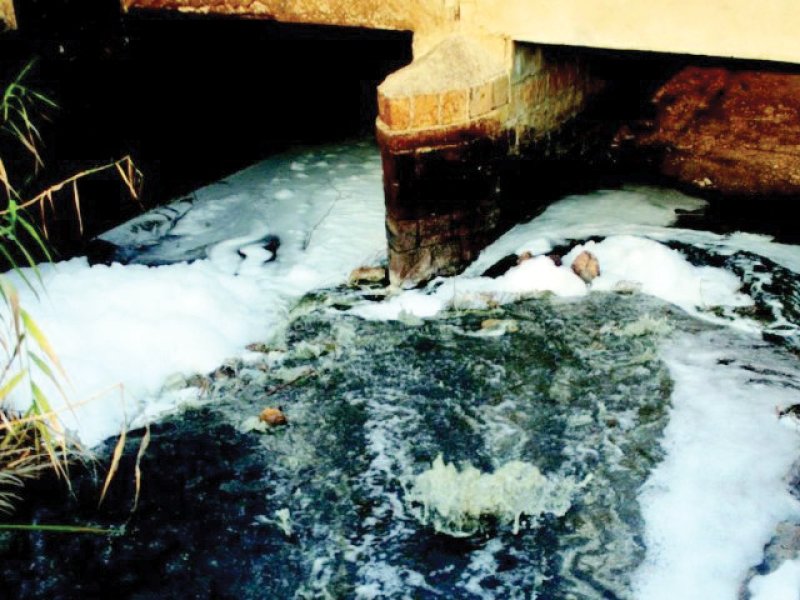
The Environment Protection Department (EPD) Punjab has found water waste in around 90% of industries substandard and 300 flour mills and the majority of pharmaceutical units without wastewater treatment plants in Rawalpindi district.
In the first phase, the EPD concluded the sampling and laboratory tests of wastewater from 67 major industries in the district.
Field officials are now starting to collect sewage samples from all industries, flour mills, and pharmaceutical companies in all six districts of Rawalpindi division after the presence of toxic chemicals in underground water and Soan River was confirmed in laboratory tests.
The department has decided to enforce the installation of wastewater treatment plants in all industries of the division.
This toxic water is not only harming the healthy soil, but it’s also causing harm to the aquatic animals. The use of chemical-contaminated sewage water is further poisoning vegetables, fruits and crops.
The department has established that the flour mills in Rawalpindi district have been contaminating water for the last 20 to 40 years and causing illnesses.
Beginning on March 1, the EPD has also approved the sampling of wastewater being released by pharmaceutical companies in the Rawalpindi district. It is revealed that wastewater treatment plants were not installed in the majority of pharmaceutical units, while those factories having these plants use them for demonstration purposes only.
The wastewater sampling of industries in the Attock district will be completed by Feb 29, while sampling of multiple industries in the districts of Chakwal, Talagang and Jhelum, which begins in the first week of March, will be completed by March 31.
Read KW&SB submits report on sewage treatment plants
The EPD will initiate legal action against the industries whose samples are found substandard and they fail to install sewage treatment plants. In the first phase, notices will be served to all factories and responses will be sought. Subsequently, if their answers are unsatisfactory, they [industrial units] will be served with final show-cause notices.
Cases will be further sent to the Punjab Environmental Tribunal. After hearing cases, the tribunal can impose a fine ranging from Rs100,000 to Rs1 million sealing the units or can impose both penalties.
When contacted, senior research officer laboratory at the EPD, Amin Baig told The Express Tribune that the wastewater sampling of industries is in progress in Rawalpindi division. He said that the companies release substandard and hazardous chemical-mixed water into the Saon River, which then flows into other rivers.
Due to the constant release of toxic chemicals into the water, it is becoming a threat to the aquatic life in the rivers, Amin, said, adding the same water is also used for irrigation purposes.
He said that the department would complete division-wide sampling by March 31 before pursuing stern legal action against the violators. The field staff of Rawalpindi district has been provided final reports for pursuing legal procedures, the official added.
Amin said that this year the department would fully focus on the installation of wastewater treatment plants by the industries, and ensure that the discharge of water from factories is per environmental standards.
Published in The Express Tribune, February 20th 2024.



1732266251-0/Josh-Brolin-(1)1732266251-0-165x106.webp)
1732266343-0/BeFunky-collage-(82)1732266343-0-165x106.webp)

1726722687-0/Express-Tribune-Web-(9)1726722687-0-270x192.webp)











COMMENTS
Comments are moderated and generally will be posted if they are on-topic and not abusive.
For more information, please see our Comments FAQ